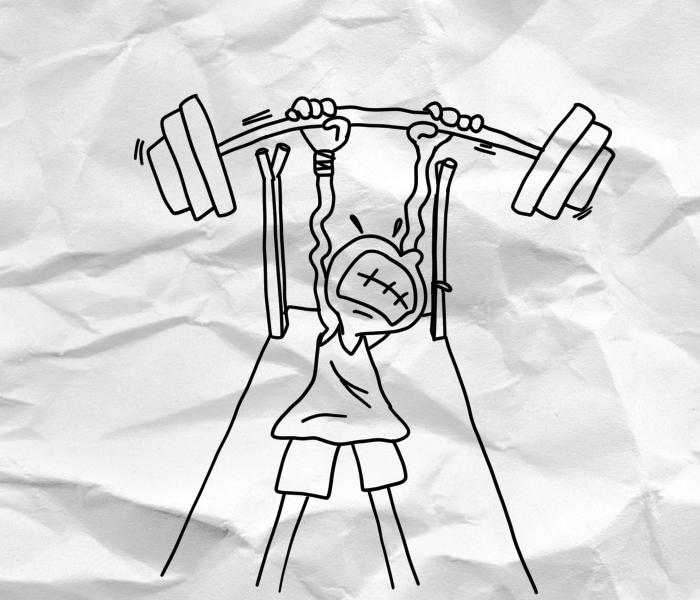Sports nutrition is highly popular. Why so? Top athletes have specialized diets, so if we want to be like them, we should eat the same. And the idea itself is so inviting: just eat the right food and you will be stronger, faster and healthier! There are a myriad of different types of sports nutrition, too many to be covered in a single post.
I will therefore focus on only one thing: protein supplements. Again, there are endless options for your protein supplement, either in different protein formulas or refined amino acids. Therefore I will mostly focus on whey protein supplements, the most basic form of protein supplement. Also with the protein supplements the promise is simple: eat the right supplements and your muscles will be bigger or you will be stronger. To be more precise, the promise is IF you train AND eat the supplements you will be stronger or your muscles will get bigger. Not so much inviting anymore, but let’s explore this even further.
Theoretical considerations
To be completely clear, I will assume a standard young man, 180 centimeters high, weighing 75 kg and having a standard muscle mass. I am considering a man since they are much more likely to use protein shakes or protein supplements.
Daily protein intake

Protein supplements are, obviously, not intended for calorie replacement. But let’s illustrate this further. Our model person needs around 2500 kilocalories per day. This is around four and a half Big Macs in your local McDonalds or 0,85 kg of bread or 0,7 kg of an average whey protein supplement. This amount of whey protein contains around 350 grams of pure proteins, an amount almost six times the recommended daily protein intake. Clearly protein supplements are not suitable for covering calorie intake, since the conversion of proteins to energy stresses the body through excess ammonia. Ingesting too much protein is definitely harmful for people with poor kidney function. It will worsen their condition and accelerate kidney damage. There is no evidence to say that ingesting a lot of protein is not harmful for normal, healthy people. Definitely more research is needed in this field and currently we can only advise against high protein intake due to potential harmful effects.
Interesting facts: If our model person would cover all his daily energy needs with Big Macs, he would ingest around 110 g of proteins – almost twice the recommended daily intake. Even if he would eat only bread, he would still get enough proteins – around 85 g per day – which would cover all his needs.
Muscle buildup

Most frequently protein supplements are taken to improve muscle buildup. Clearly, proteins from food are needed to build up muscle after training. But surely there is an optimum amount of ingested protein, since their excess will be used as an energy source, which is not an optimal energy source for our body. Moreover, large utilization of proteins for energy can have several negative consequences as described earlier. You clearly need to eat proteins in order for your muscles to regenerate and grow. But blindly eating protein supplements probably has no major effect, except on your wallet. Currently the recommended intake of proteins for the physically active population is 1.8 g/kg/day, with excess proteins showing no effect on muscle buildup. All recent literature reviews agree (here and here), that for the frequently exercising individual the protein intake should be above recommended daily intake of 0.8 g/kg/day. On average, the recommended amount in literature is twice the daily recommended intake (i.e. 1,6 g/kg/day), or somewhere in the range of 1.4-2.0 g/kg/day. The reviewers agree that amounts above this level have no additional benefit on muscle buildup and strength. As shown in this study, even an additional 15 g of protein supplement on top of regular daily intake of about 1.8 g/kg/day have fairly little to no effect on muscle buildup and strength.
Although the amounts of proteins intake are fairly fixed in the literature, the time of protein intake is not. Several researchers believe that these proteins can be distributed throughout the whole day. If you consider this in view of studies showing minimal or no effects of post exercise protein supplements, things make sense. As long as you eat enough proteins and work out, your body will get enough material to build the muscles. And with the recommended protein intake of 2.0 g/kg/day (I am deliberately using the upper limit, not the standard 1.6 g/kg/day), this makes for about 150 g of proteins per day for our model person. In 2013 an average US resident consumed around 110 g of proteins per day. Considering that we used the upper protein daily limit and that the model person eats probably more proteins than the average person, we can be almost sure that he is consuming the required and optimal daily amount of proteins. If we want to be completely sure, a 100 g protein supplement, a small steak or a good ham and cheese sandwich will cover the difference. So, in theory, if you eat regular meals, evenly spread throughout the day, you should get a more than adequate supply of proteins to build up your muscles.
There are surely several parameters impacting muscles buildup, beside protein amount and time of protein intake. Age is definitely an important factor. And since this is an important topic for ederly population, there is quite some research in this are. It is, admittedly, a bit off topic, but there is probably no correlation between protein intake and muscle mass in elderly or a proof that protein supplementation increases muscle mass or muscle strength. In the best of cases, all we can say is that there is too little data to claim a positive effect of protein intake. This further proves that if you eat enough, there is no need for protein supplementation.
Now, lets see what happens if you eat suboptimal levels of protein. The data on this is even more scarce compared to the data of supplements with recommended protein intakes. But considering this study, you do not lose too much. It involves top athletes and the difference in protein intake was big (2.5 g/kg/day vs. 0.9 g/kg/day – just as a side note, 0.9 is approximately the daily recommended amount of proteins for the general population). Despite this, there was no difference in strength gain, but there was a significant gain fat-free mass (presumably muscles). So if you are not directly striving for muscle growth, proteins do not provide additional benefit over normal daily requirements.
Summary
Current evidence shows that 1.4-2.0 g/kg/day of proteins should cover all protein needs for exercising individuals. No improvements in muscle strength and muscle mass are observed if you consume proteins or protein supplements above these values. Furthermore, time of protein consumption probably plays no important role, as long the consumption is spread throughout the day. Finally, if we consider an average, mixed diet, the required amount of proteins for exercising individuals is probably already consumed during regular diet. Therefore we can safely conclude that protein supplements are not needed for the vast majority of exercising individuals.
The above is even more true for average active individuals, who exercise 2-3 times per week. To put it more graphically: if you workout twice per week, your muscle strength and mass wont change if you add protein supplements to your regular diet. But it will significantly increase if you add another workout per week.








